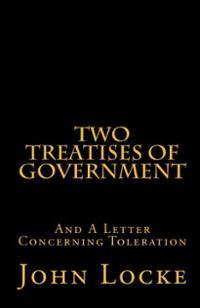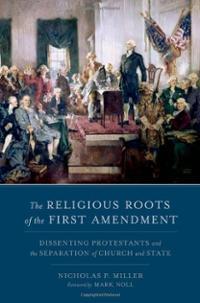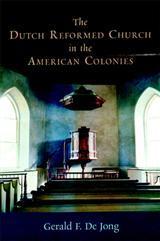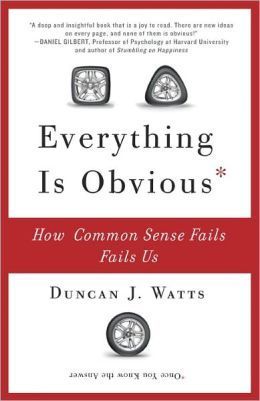Kevin DeYoung's Blog, page 118
January 15, 2013
Let Freedom Ring
 On Thursday we learned that an evangelical pastor cannot say a benediction at the Presidential Inauguration because 15 years ago he affirmed the Bible’s prohibition of homosexual behavior. It was a sad day for evangelical Christians. A hard day. A frustrating day.
On Thursday we learned that an evangelical pastor cannot say a benediction at the Presidential Inauguration because 15 years ago he affirmed the Bible’s prohibition of homosexual behavior. It was a sad day for evangelical Christians. A hard day. A frustrating day.
But let it also be our Independence Day.
Let us be free from the false hope that heroic deeds and quiet agreeableness can atone for the sin of orthodox conviction.
Let us be free from the wishful thinking that good works and good manners can appease the Great God Tolerance.
Let us be free from the misplaced assumption that faithfulness to God can go hand in hand with worldly congratulation.
If it is “anti-gay” to believe that the normativity of male-female sexual union is taught by nature and nature’s God then let us wear a Scarlet Letter around our necks. Christ bore much worse.
If the culture of free love is going to hate those who believe marriage was made with God-given limits then let the opprobrium fall on us. We will despise the shame.
If henceforth we shall be considered the scum of the earth for believing what the Church has taught for 2000 years then let us be the scent of death to some. We shall be the aroma of life to others.
And lest anyone think this is a call to arms or a manifesto of malediction, it is not. If we are reviled, we shall not revile in return. If we are hated we shall pray to God for more love. If we are excluded from polite society, we will still include all Christ-exalting, Bible-believing, broken hearted sinners in the fellowship of the redeemed. And if we are esteemed by some as better off dead, we will not cease to offer the words of life.
We will not stop serving where we can. We will not stop repenting when we sin. We will not stop speaking the truth about our Lord and about his law.
There are likely far bigger disappointments to come than the one that dropped last Thursday. We did not choose this culture war and it is not about to leave us alone. The media, the academy, the government, the libertine elite–they may sully our reputation and shame our convictions, but they cannot steal our joy. We can pray more, sing more, and smile more than any of the party-goers making mud pies in the slums. We do not have to fit in down here so long as we fit in up there. We do not need a president’s approval if we have the affection of our King. Our hearts and our Bibles are wide open. Our salvation is firm. Let freedom ring.
January 14, 2013
Monday Morning Humor
January 11, 2013
A Lockean Philosophy of Government
 Few men produced ideas more influential to the founding of this country than the English philosopher John Locke (1632-1704) . The most famous in the Declaration of Independence–”We hold these truths to be self-evident, that all men are created equal, that they are endowed by their Creator with certain unalienable Rights, that among these are Life, Liberty and the pursuit of Happiness”–echoes many of Locke’s most important ideas.
Few men produced ideas more influential to the founding of this country than the English philosopher John Locke (1632-1704) . The most famous in the Declaration of Independence–”We hold these truths to be self-evident, that all men are created equal, that they are endowed by their Creator with certain unalienable Rights, that among these are Life, Liberty and the pursuit of Happiness”–echoes many of Locke’s most important ideas.
Locke’s philosophy (and in some places, theology) of government includes seminal concepts like these:
1. All men are born under natural law, a law which comes from God and can be known by all rational creatures.
2. This law requires us to preserve, protect, and work for the flourishing of human life.
3. Because of this natural law, no one has the right to arbitrarily take another man’s life.
4. All men, therefore, are born free, with a God-given right to life, liberty, and property.
5. All men are born equal, not in an absolute sense of equality, but in the sense that they are by nature free.
6. The natural state of liberty is threatened by the persistent evil of man. We consent to be governed and join civil society to gain protection from the evils of others and because we are prone to wrongdoing ourselves.
7. The proper role of government, then, is to safeguard my life and liberty and that of my neighbor.
Here is how Locke puts it in greater detail:
If man in the state of nature be so free, as had been said; if he be absolute lord of his own person and possessions, equal to the greatest, and subject to no body, why will he part with his freedom? Why will he give up this empire, and subject himself to the dominion and control of any other power?
To which it is obvious to answer, that though in the state of nature he hath such a right, yet the enjoyment of it is very uncertain, and constantly exposed to the invasion of others: for all being kings as much as he, every man his equal and the greater part no strict observers of equity and justice, the enjoyment of the property he has in this state is very unsafe, very unsecure. This makes him willing to quit a condition, which, however free, is full of fears and continual dangers: and it is not without reason, that he seeks out, and is willing to join society with others, who are already united, or have a mind to unite, for the mutual preservation of their lives, liberties, and estates, which I call by the general name, property.
The great and chief end, therefore, of men’s uniting into commonwealths, and putting themselves under government, is the preservation of their property. To which in the state of nature there are many things wanting (Two Treatises, Sections 123-24).
Granted, John Locke is not our Constitution, even less some authoritative creed for Christians. But it would be good for us to look at our first principles of politics rather than just disagreeing on the latest hot button issue or quarantining our theology of government as if Christians shouldn’t talk of such things.
January 10, 2013
Book Briefs
 John Locke, Two Treatises of Government and A Letter Concerning Toleration (Classic Books International). You can’t understand the American experiment apart from John Locke. Although Locke’s Christianity was a mixed bag, there’s no question he took his faith seriously and his writings show extensive interaction with Scripture. Greg Forster is right: “Locke’s political theory is a Christian natural-law theory” (The Contested Public Square). Two Treatises argues that government exists by and for the consent of the government. His Letter Concerning Toleration maintains that the magistrate may not infringe upon the conscience of a private individual. It’s not hard to see echoes of Locke in this country’s Founding Fathers and relevance for today.
John Locke, Two Treatises of Government and A Letter Concerning Toleration (Classic Books International). You can’t understand the American experiment apart from John Locke. Although Locke’s Christianity was a mixed bag, there’s no question he took his faith seriously and his writings show extensive interaction with Scripture. Greg Forster is right: “Locke’s political theory is a Christian natural-law theory” (The Contested Public Square). Two Treatises argues that government exists by and for the consent of the government. His Letter Concerning Toleration maintains that the magistrate may not infringe upon the conscience of a private individual. It’s not hard to see echoes of Locke in this country’s Founding Fathers and relevance for today.
 Nicholas P. Miller, The Religious Roots of the First Amendment: Dissenting Protestants and the Separating of Church and State (Oxford). Miller makes a strong case that the idea of religious liberty in America was owing as much to Protestant sensibilities (sometimes latent, but growing over time) as to Enlightenment ideals. I thought he was a bit uncharitable toward Calvinism at times and his last several pages of contemporary application were a stretch, but overall he makes an important case that theological convictions played a central role in the establishment of religious liberty in this country, and in our Constitution. I especially appreciated Miller’s interaction with John Witherspoon and Elisha Williams.
Nicholas P. Miller, The Religious Roots of the First Amendment: Dissenting Protestants and the Separating of Church and State (Oxford). Miller makes a strong case that the idea of religious liberty in America was owing as much to Protestant sensibilities (sometimes latent, but growing over time) as to Enlightenment ideals. I thought he was a bit uncharitable toward Calvinism at times and his last several pages of contemporary application were a stretch, but overall he makes an important case that theological convictions played a central role in the establishment of religious liberty in this country, and in our Constitution. I especially appreciated Miller’s interaction with John Witherspoon and Elisha Williams.
 Gerald F. De Jong, The Dutch Reformed Church in the American Colonies (Eerdmans). A very fine scholarly work, evenhanded and interesting. One of themes that plays out over and over, especially in the 18th century, is the tension between pietist Reformed types who were more evangelical and more open to Americanization, and the old school Reformed traditionalists who prized continuity with the homeland and their past. On the one hand, evangelists like Theodorus Frelinghuysen could be real hotheads. The way he talked about his brothers was inappropriate. He made unilateral church discipline decisions and didn’t care much about the official church order at times. On the other hand, his opponents constantly harped about doing things the “Dutch way.” They seem to value the church order and the liturgy above all else. They didn’t like the emotionalism, pietism, or conversionism of the more American wing of the church. These same tensions play out again and again in church history. From the vantage point of 300 years it’s easier to see where both sides went wrong; it’s much harder to discern in your own day.
Gerald F. De Jong, The Dutch Reformed Church in the American Colonies (Eerdmans). A very fine scholarly work, evenhanded and interesting. One of themes that plays out over and over, especially in the 18th century, is the tension between pietist Reformed types who were more evangelical and more open to Americanization, and the old school Reformed traditionalists who prized continuity with the homeland and their past. On the one hand, evangelists like Theodorus Frelinghuysen could be real hotheads. The way he talked about his brothers was inappropriate. He made unilateral church discipline decisions and didn’t care much about the official church order at times. On the other hand, his opponents constantly harped about doing things the “Dutch way.” They seem to value the church order and the liturgy above all else. They didn’t like the emotionalism, pietism, or conversionism of the more American wing of the church. These same tensions play out again and again in church history. From the vantage point of 300 years it’s easier to see where both sides went wrong; it’s much harder to discern in your own day.
[image error]Scott Maze, Theodorus Frelinghuysen’s Evangelism: Catalyst to the First Great Awakening (Reformation Heritage Books). As a converted doctoral dissertation (Southwestern Baptist Theological Seminary), this book is stronger on content than style. But Maze provides a detailed look at one of evangelicalism’s most neglected fathers. Frelinghuysen was a Dutch pastor who served in New Jersey in the first half of the 18 century. His fiery preaching, forceful personality, and fruitful ministry made him as a forerunner to the Great Awakening. Maze’s analysis is sympathetic to Frelinghuysen, without glossing over his weaknesses (which were severe at times). The strength of the dissertation lies in Maze’s ability to place Frelinghuysen within the context of the Dutch Second Reformation and its emphasis on classification, holy living, and church discipline.
 Duncan Watts, Everything is Obvious: How Common Sense Fails Us (Crown Business). Like a lot of secular books, this one does better with diagnosis than prescription. I found the first half of the book riveting and the second half unconvincing. But thankfully, the first half is good enough to make up for the second. Watts main contention is that while common sense is helpful on a personal level, it often fails miserably on a macro scale. His most helpful point is the reminder that most of our “common sense” only makes sense in the rear view mirror. That is to say, we explain history as if it is the product of obvious steps and decisions, but really we don’t often know why things happened, let alone what will happen in the future. Fans of Malcolm Gladwell will find much food for thought in this book, as Watts frequently takes issue with the Gladwell’s logic and not-so-spot-on insights.
Duncan Watts, Everything is Obvious: How Common Sense Fails Us (Crown Business). Like a lot of secular books, this one does better with diagnosis than prescription. I found the first half of the book riveting and the second half unconvincing. But thankfully, the first half is good enough to make up for the second. Watts main contention is that while common sense is helpful on a personal level, it often fails miserably on a macro scale. His most helpful point is the reminder that most of our “common sense” only makes sense in the rear view mirror. That is to say, we explain history as if it is the product of obvious steps and decisions, but really we don’t often know why things happened, let alone what will happen in the future. Fans of Malcolm Gladwell will find much food for thought in this book, as Watts frequently takes issue with the Gladwell’s logic and not-so-spot-on insights.
January 9, 2013
Our Sure Hope
The following is an excerpt from a recent sermon I preached on Acts 5:17-42.
*****
I often repeat the line: the word of God is sufficient to do the work of God. We all believe this, but, if we’re honest, there are days where it doesn’t feel very true. Will the word of God win out? Is the word of God really strong enough to go to the ends of the earth? It can feel so muted, impotent, helpless, small, constrained, restricted, powerless.
Maybe you think, “What about all the unreached peoples that haven’t heard?” Or, “What about my unreached neighbors? I keep praying for them and waiting for an opportunity and I’ve tried and I’ve talked about Jesus. I invited them to church and there’s nothing. It doesn’t feel like there’s any way to get through.” Maybe you think what about the ways religious liberty and freedom are being threatened in the West. You fear and you wonder: what will happen to the truth of God’s word?
Brothers and sisters, God wants you to know this morning and hear on the authority of the Bible that God is not muted, helpless, small, restricted, or powerless. He sees. He knows. He is at work in the world. And his word will not be silenced.
Jesus does not promise us long life. He does not promise us riches and uninterrupted good health. He does not promise the triumph of Christian values in the marketplace of ideas. He does not promise a favorable response to the word of God. What Jesus does promise is that his word will go to the ends of the earth and he will be with us to the very end of the age.
In the midst of all that is broken and sinful and tragic in this world, God wants us to have this sure hope: that no man, woman or child, no government institution or law, no power, prince or potentate can silence the word of God.
You can listen to the entire sermon and watch the whole thing here.
January 8, 2013
Why You Should Care About the Hobby Lobby Case—And Be Alarmed
 The facts are well known: the Patient Protection and Affordable Care Act (aka Obamacare) requires employers to provide insurance for their employees. As part of the mandated health coverage, businesses must include contraceptives and abortifacient drugs in their insurance plans. Hobby Lobby, owned by the Green family (strong Christians and generous philanthropists), is refusing to comply with the HHS mandate, believing that the government is requiring what is unethical and infringing upon their religious liberty. Perhaps it is tragically fitting that Justice Sotomayor denied Hobby Lobby judicial relief on December 26—St. Stephen’s Day, the day the church remembers its first martyr.
The facts are well known: the Patient Protection and Affordable Care Act (aka Obamacare) requires employers to provide insurance for their employees. As part of the mandated health coverage, businesses must include contraceptives and abortifacient drugs in their insurance plans. Hobby Lobby, owned by the Green family (strong Christians and generous philanthropists), is refusing to comply with the HHS mandate, believing that the government is requiring what is unethical and infringing upon their religious liberty. Perhaps it is tragically fitting that Justice Sotomayor denied Hobby Lobby judicial relief on December 26—St. Stephen’s Day, the day the church remembers its first martyr.
Millions of Americans are already outraged. And rightly so. Our government not only allows for abortion, and celebrates abortion rights, and wants women to have unfettered access to abortion on demand, it now requires other Americans to pay for abortion-inducing drugs or face crippling fines. It is not an endorsement of any political party to conclude that this policy is morally degenerate. More Americans should be alarmed than are already.
The Department of Justice’s brief filed in October makes a number of arguments (in opposition to the Greens) which bear closer scrutiny and ought to arouse no small degree of concern. I’m no legal scholar, but as a Christian citizen and an American worried about our liberties, I would ask questions like these:
The brief argues that as a secular corporation Hobby Lobby does not receive the same protection to freely exercise religion—but what of the rights of the individuals who own and operate the company?
The brief argues that “any burden caused by the regulations is simply too attenuated to qualify as a substantial burden”—but can the government now determine which burdens on the conscience are “substantial” and how does it plan to make these determinations?
The brief argues that the health care regulation “serves two compelling governmental interests: improving the health of women and children, and equalizing the provision of recommended preventive care for women and men”—but on what grounds can the termination of fetal life be construed as “improving the health” of it?
The brief asserts that “The Free Exercise Clause does not prohibit a law that is neutral and generally applicable even if the law prescribes conduct that an individual’s religion proscribes”—but how is the contraceptive mandate “neutral” when the largest religious body in the country (the Catholic Church) opposes contraception outright and tens of millions of evangelical Christians believe the mandate violates their religious convictions relative to abortion?
The brief argues that “the Court should not permit the Greens to eliminate that legal separation to impose their personal religious beliefs on the corporate entity or its employees”—but by what logic is the failure to provide “preventive care” by a private company the imposition of religious belief and the mandating of it by the state it is not?
I’m a pastor, not a lawyer, justice, or politician. But let us pray for all of the above, that they may do justice, love kindness, and walk humbly with God. Religious liberty is a precious gift we think too little of, and we will miss it sorely when it’s gone.
January 7, 2013
Monday Morning Humor
January 4, 2013
How to Pray Using Scripture
Sometimes it’s the simplest things that make the biggest difference. For many years I’ve used the 3 R’s I learned from Ben Patterson to pray through Scripture. This simple tool has helped me pray the Bible more than any other single strategy. I’ve used in my devotional times and have employed it often in leading others in prayer.
1. Rejoice
2. Repent
3. Request
With every verse in the Bible we can do one (or more likely, all three) of these things. We can rejoice and thank God for his character and blessings. We can repent of our mistakes and sins. We can request new mercies and help.
Right now I just flipped opened my Bible and landed at Psalm 104. Verse 1 says “Bless the Lord, O my soul! O Lord my God, you are very great! You are clothed with splendor and majesty.” How might you pray through this verse? Well, at first blush you might see nothing more to do than praise God. “Dear Lord, you are very great. You are clothed with splendor and majesty. Amen.” But try that again with the 3 R’s.
Rejoice – O Lord, you have richly blessed me more than I deserve. What a privilege that I can call you my God. Thank you for making me a little lower than the angels and crowing me with glory and honor too.
Repent – Forgive me for being blind to your splendor and majesty. Though you are very great, my circumstances and disappointments often feel greater. I’m sorry for being so ungrateful and taking your blessings for granted.
Request – Give me eyes to see as you are. Tune my heart to sing your praise. Help me see your glory in the world you’ve created, in the people around me, and in the face of Christ.
Obviously, some verse lend themselves to prayer more easily than others. The Psalms are particularly prayer-worthy. But with the simple strategy of Rejoice, Repent, Request there shouldn’t be a verse in the Bible that can’t be used as a prompt to pray.
January 3, 2013
Things People Should Never Say They Never Heard at Your Church
I cringe every time I hear the testimony of a Christian who grew up in the church and only later came to understand some fundamental article of the faith. Granted, some things are hard to understand. We have to drink milk before we get to meat. I’m not chagrined about the folks who never learned the word propitiation or never knew the difference between Christ’s active and passive obedience. Those are incredibly important concepts and we ought to teach them from the ground up. But I’m talking about the basics, about the things that every Christian should know backwards and forward, the things we should hear in church all the time.
Granted, people do not remember all they should remember. It’s possible the fault lies with the hearers as much as the speakers. But still, that’s only more incentive to make certain thing crystal clear. We must not assume our people know what they need to know. We can’t assume they’ve heard what we think we’ve told them.
As a pastor, there are certain things I hope the people at my church will never say they never heard. These are not necessarily the most important doctrines of the faith (though some are). Rather, these are the things we easily assume our people know, but often still miss.
And when they miss these things they can end up missing everything.
1. “Being a Christian is more than going to church and being a good person.” We have to make this one absolutely and repetitively clear. I promise you there are people in your church (and mine) who think Christianity consists of attending religious services with some regularity and not screwing up in major ways. Make sure they know the gospel, that Jesus Christ lived the life we couldn’t live and died the death we deserved so that by faith alone we can be made right with God. Make sure they can articulate the gospel too.
2. “We must be born again.” I’m struck that the history of revivals shows that awakenings often follow when preachers return to this theme again and again. Do your people know that they are dead in sin and need the miracle of regeneration?
3. “We need to develop a personal relationship with Christ.” We may not get tired of the phrase “personal relationship” but it’s trying to get at something crucial for the Christian life. We must really know Christ and love him and walk with him and listen to him.
4. “Mature Christians develop lifelong habits of Bible reading and prayer.” It may be completely my fault, but somehow I didn’t know this until I met some good fundy Baptist friends in high school who started each day with something called a “quiet time.”
5. “Christians suffer.” Our suffering is made worse in this country because no one tells us it is coming.
6. “God can be pleased with me.” The Christians who understand numbers 1-5 often struggle to embrace this truth. Tell your people often that God delights in their obedience. Tell them that God is a loving Father who is pleased with his faithful, though imperfect, children.
7. “Beware of false teachers.” We have not trained our young people well if they leave our safe environment and assume that everyone who goes my the name of Christian or publishes a Christian book or teaches at a Christian school can be trusted.
8. “There is one God in three Persons.” What’s more foundational than God himself? And yet, how many churches adequately, frequently instruct their people in the Trinity.
9. “There are many people in the world who don’t think Christianity is true and some of them are very nice and very smart.” If we are around church our whole lives we may learn that others disagree with us, but their beliefs and arguments are often presented weakly. It’s easy for people to grow up in the church figuring that other worldviews are pretty dumb and/or those who espouse them are obviously bad people. Prepare your people that they will encounter decent and intelligent people who disagree with them. Get them ready to think beyond stereotypes.
10. “There is a reason we worship the way we do.” Granted, this may not be the case in every church. Some worship services are thrown together under the basic rubric of “whatever I like and seems to work.” But probably your church is better than this. Take time to explain why you still sing old hymns, why you try new songs, why you have a prayer of confession, why there is a pastoral prayer, why the sermon is the way it is. Worship goes goofy when church members have never been taught why we worship the way we do.
If you are a pastor, parent, Bible study leader, Sunday school teacher, or anyone who instructs others in the faith, don’t assume your kids or your people know these things. Repeat then. Sing them. Pray them. Ask people to say what you just said. Make them raise their hands. Make them repeat after you. Do whatever it takes to make sure your people can never say they never heard the most important things from you.
January 2, 2013
New Church Address
If you’ve ever sent anything to University Reformed Church in the past or hope to in the future, please note our new address:
841 Timberlane St., East Lansing, MI 48823
We are now completely moved out of our old Hagadorn location. Thanks for making the change with us.



